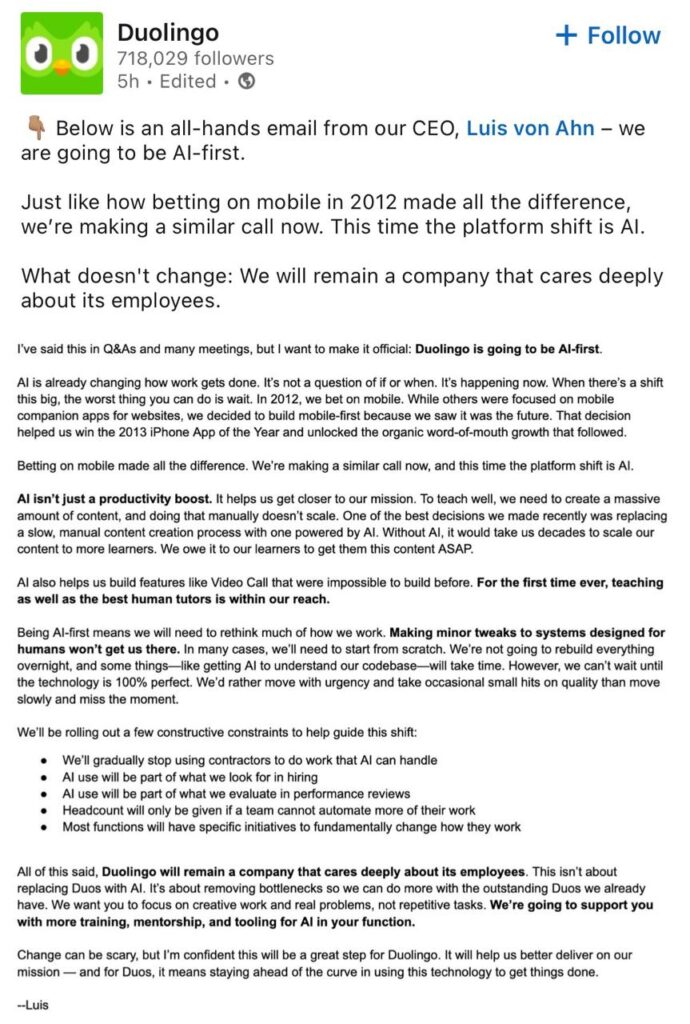An internal letter from Duolingo CEO became a public declaration: “I’ve said this in many meetings, but I want to make it official: Duolingo will be #1 in AI.” and rebuild all key processes under the AI-first strategy. This statement is a signal not only for employees, but also for the entire EdTech industry, marketing and digital businesses.
Axiliate team has outlined key takeaways that could shape how companies and marketers approach AI transformation.

Key nuances:
Not Just Adopting AI — Rebuilding From the Ground Up
“We won’t get there by making small changes to systems designed for humans — in many cases, we’ll have to start from scratch.”
Unlike companies that implement AI in isolated use cases, Duolingo is committing to a structural shift. It recognizes that incremental tweaks won’t cut it — a total reimagining is necessary. This is how true AI-native companies are born.
What this means for others:
- Small AI add-ons won’t create a competitive edge anymore.
- Businesses must rethink product development, workflows, and even org charts from an AI-first perspective.
Restructuring the Workforce Around AI Efficiency
The company will phase out contractors for tasks AI can handle, and grow headcount only if automation isn’t feasible — a bold, operationally aggressive move. This frames company growth around AI efficiency rather than human scale.
Implications for marketing:
- AI literacy and effectiveness will become KPIs.
- Competitive advantage will shift from headcount to automation leverage.
AI Fluency Becomes the New Digital Literacy
“Using AI will be part of what we look for when hiring… and evaluate in performance reviews.”
This transforms the talent landscape. AI fluency is no longer a plus — it’s becoming the new basic skill, like Excel proficiency in the 2010s.
Industry outcomes:
- Massive demand for AI-savvy professionals across all functions.
- Surge in hybrid skills: combining creative or business thinking with prompt engineering, AI tooling, and automation.
Content and Product Scale as AI Assets
“Without AI, it would take us decades to scale our content to more learners.”
For an education platform that relies on high-volume content across languages and levels, this is a game-changer. Duolingo positions AI as a content engine, reducing production time from years to months.
New competitive logic:
- It’s no longer about how many content creators you have.
- It’s about how smart and scalable your generative content workflows are.
What This Means for the Industry
- EdTech will be the first sector where AI-native companies dominate.
- Marketing will shift from content production to AI model optimization and impact measurement.
- Culture and performance will evolve — AI usage will define productivity, not hours worked or tasks completed.
Final Thought: A Strategic Template for AI-First Leadership
Duolingo’s memo is more than a cultural shift — it’s a strategic blueprint for future-proofing a business in the AI era. The company understands that speed, not perfection, wins the platform race. And while others hesitate, Duolingo is already rewriting the rulebook.
For companies in any industry, the message is clear: this isn’t about using AI — it’s about becoming AI-native. Those who fail to adapt won’t just fall behind. They’ll lose the right to lead.
Leave a Reply